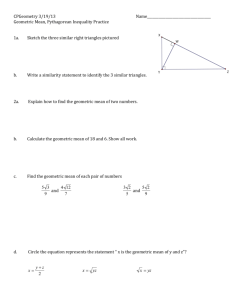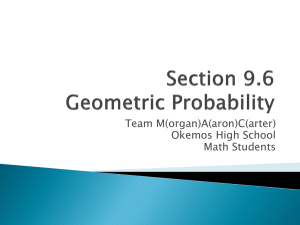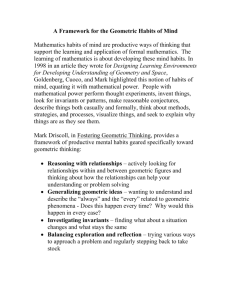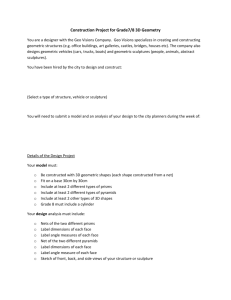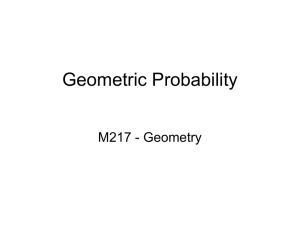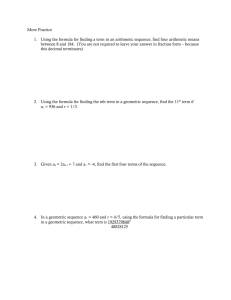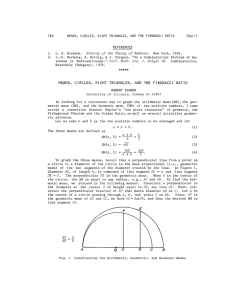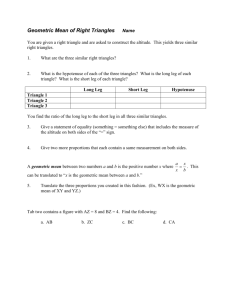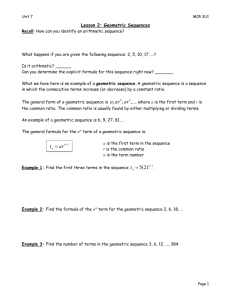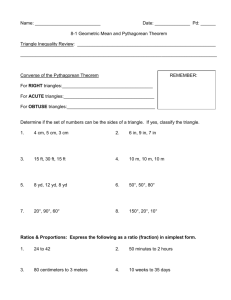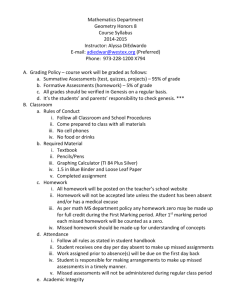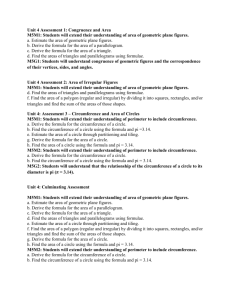HCPSS Curriculum Framework Grade 7 Unit 4 Geometry
advertisement
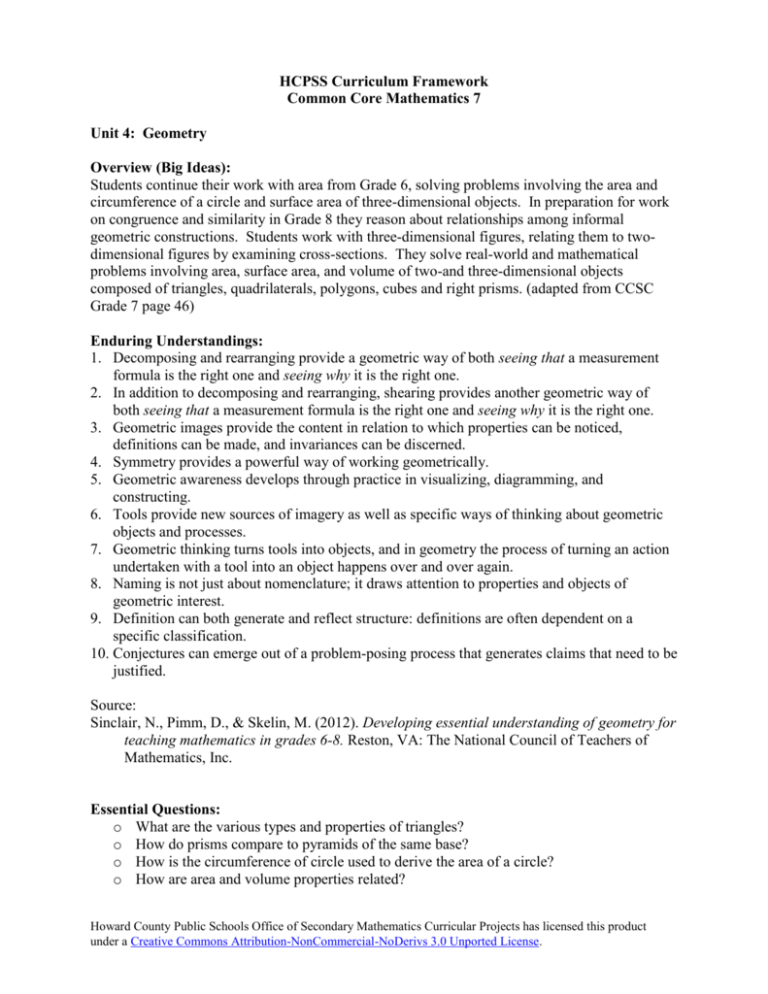
HCPSS Curriculum Framework Common Core Mathematics 7 Unit 4: Geometry Overview (Big Ideas): Students continue their work with area from Grade 6, solving problems involving the area and circumference of a circle and surface area of three-dimensional objects. In preparation for work on congruence and similarity in Grade 8 they reason about relationships among informal geometric constructions. Students work with three-dimensional figures, relating them to twodimensional figures by examining cross-sections. They solve real-world and mathematical problems involving area, surface area, and volume of two-and three-dimensional objects composed of triangles, quadrilaterals, polygons, cubes and right prisms. (adapted from CCSC Grade 7 page 46) Enduring Understandings: 1. Decomposing and rearranging provide a geometric way of both seeing that a measurement formula is the right one and seeing why it is the right one. 2. In addition to decomposing and rearranging, shearing provides another geometric way of both seeing that a measurement formula is the right one and seeing why it is the right one. 3. Geometric images provide the content in relation to which properties can be noticed, definitions can be made, and invariances can be discerned. 4. Symmetry provides a powerful way of working geometrically. 5. Geometric awareness develops through practice in visualizing, diagramming, and constructing. 6. Tools provide new sources of imagery as well as specific ways of thinking about geometric objects and processes. 7. Geometric thinking turns tools into objects, and in geometry the process of turning an action undertaken with a tool into an object happens over and over again. 8. Naming is not just about nomenclature; it draws attention to properties and objects of geometric interest. 9. Definition can both generate and reflect structure: definitions are often dependent on a specific classification. 10. Conjectures can emerge out of a problem-posing process that generates claims that need to be justified. Source: Sinclair, N., Pimm, D., & Skelin, M. (2012). Developing essential understanding of geometry for teaching mathematics in grades 6-8. Reston, VA: The National Council of Teachers of Mathematics, Inc. Essential Questions: o What are the various types and properties of triangles? o How do prisms compare to pyramids of the same base? o How is the circumference of circle used to derive the area of a circle? o How are area and volume properties related? Howard County Public Schools Office of Secondary Mathematics Curricular Projects has licensed this product under a Creative Commons Attribution-NonCommercial-NoDerivs 3.0 Unported License. Curriculum Standards: 7.G.A Draw, construct, and describe geometrical figures and describe the relationships between them. 2. Draw (freehand, with ruler and protractor, and with technology) geometric shapes with given conditions. Focus on constructing triangles from three measures of angles or sides, noticing when the conditions determine an unique triangle, more than one triangle, or no triangle. 3. Describe the two-dimensional figures that result from slicing three-dimensional figures, as in plane sections of right rectangular prisms and right rectangular pyramids. 7.G.B Solve real-life and mathematical problems involving angle measure, area, surface area, and volume. 4. Know the formulas for the area and circumference of a circle and use them to solve problems; give an informal derivation of the relationship between the circumference and area of a circle. Common Misconceptions: o Students often confuse the vocabulary associated with this domain. Teachers should provide experiences for the explicit discovery of these terms to apply meaning through written, pictorial, and experiential means. They continue to misuse units for distance, area, and volume. This too should be explicitly reviewed from the sixth grade domain. Howard County Public Schools Office of Secondary Mathematics Curricular Projects has licensed this product under a Creative Commons Attribution-NonCommercial-NoDerivs 3.0 Unported License.
